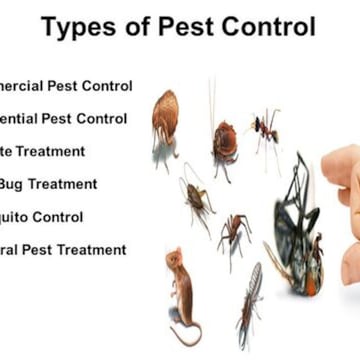Some Known Incorrect Statements About Pest Control
Some Known Incorrect Statements About Pest Control
Blog Article
Pest Control for Dummies
Table of ContentsThe Basic Principles Of Pest Control The 9-Minute Rule for Pest ControlUnknown Facts About Pest ControlPest Control Can Be Fun For EveryonePest Control for Beginners
Limitations of Chemical Management Be able to assess bug issues, determine if monitoring is needed, and make suitable referrals utilizing IPM methods. Be familiar with various methods of parasite administration - their benefits and restrictions.This chapter reviews (IPM), a method that makes use of understanding about insects and their, practices, nonchemical approaches, and chemicals to manage bug problems. Added info concerning IPM for particular plants is consisted of in chapters that focus on those plants. Nonchemical bug control measures are worried in phase 17, "Organic Gardening." Taking care of birds and animals is covered in chapter 20, "Wildlife." Taking care of in the yard and yard is covered in phase 6, "Weeds." Insects in a yard or landscape might include bugs and termites, weeds,, mammals, and birds.
Numerous individuals rush to draw, hoe, or spray every weed they see. Pests and weeds, however, play a function in the. After growing a yard or developing a grass, the natural process of plant succession begins to restore and nonnative plants. A weed expanding in a grass stands for the first stage in a sequence of events that, if enabled to proceed, can eventually result in a forest.
What we call "insects" are part of a natural system at job. Just people take into consideration particular species pests when they happen where they are not wanted.
Things about Pest Control
Parasites prone to a pesticide were promptly killed, leaving immune ones to breed and increase. It ended up being clear that pesticides alone would certainly not resolve all parasite issues. Rather, overuse of pesticides created the advancement of immune bugs. Scientists started to establish a brand-new strategy to pest control. This brand-new method was called incorporated insect administration (IPM).
An IPM strategy enables some level of pests in the setting. Parasites are a lot less likely to make it through a program that uses various methods of lowering their populations. Integrated insect management was initial suggested by entomologists since insects were the very first team of bugs to prove tough to take care of with chemicals alone.
A threshold is the point at which action ought to be taken. IPM has prolonged beyond bugs to administration of all pest populations: weeds, illness organisms, and animals.
All about Pest Control
Administration as opposed to elimination of parasites is the goal. An IPM plan starts with a cautious assessment of each bug problem. Only then can one choose concerning the appropriate strategies required to reduce insect activities. The life cycle of the insect, possible damage, all-natural opponents, and effects of weather, to name a few factors, are considered prior to a control strategy is applied - Pest Control.
Clover growing in a grass might be checked out as an undesirable weed, however as a legume it is synthesizing nitrogen for the dirt and the blossoms are giving nectar to honey and other. Resistance for some weeds might be component of an IPM strategy. may be eating the fallen leaves of a plant, but when they are determined as the larvae of Eastern tiger swallowtail butterflies, their damages may be endured so we can delight in the lovely butterfly.

The 2nd most crucial tool in pest monitoring is early intervention. Responding to issues swiftly, before they have time to multiply, requires a much less significant intervention.
The Main Principles Of Pest Control
Lots of secure, useful, nonchemical techniques of plant security and parasite management may decrease or get rid of the demand to spray. Various other approaches are most useful when utilized with chemicals. To apply management practices correctly and to reduce losses, gardeners must know the sorts of pests that assault plants and comprehend pest biology.

Conducting a soil test and applying just the advised quantity of plant food and lime maximizes the advantage to the plant while Home Page reducing troubles connected to extreme use of fertilizer - Pest Control. Covering the soil with numerous inches of compost safeguards the plant in several means: decreasing dirt water loss to dissipation, minimizing weed competitors, supplying nutrients, and producing an ideal environment for earthworms and microbes that keep the soil loosened for origins and damage down natural product to launch nutrients
If mulch touches the trunk, it can develop a method for voles, germs, and fungis to assault the plant. Do not use manure or garden compost that has actually not completely decomposed as a top clothing since it can encourage undesirable bugs. Research study suggests that farming is destructive to soil framework.
See This Report on Pest Control
If tilling is deemed required, consider doing it in the loss when the life cycles of lots of pests brings them near the surface. At the surface area, insects find here come to be exposed to the weather condition as well as birds and other all-natural adversaries. Loss tilling can also damage bugs in plant deposits. Use disease-free and insect-free licensed seeds and plants if offered.
Report this page